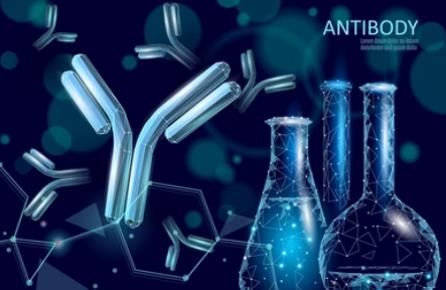Single B Cell Antibody Technology
Inquiry

Single B cell technology is a newly developed technology for rapid preparation of monoclonal antibodies in recent years. According to the characteristics that each B cell contains only one functional heavy chain variable region DNA sequence and one light chain variable region DNA sequence, and that each B cell only produces one specific antibody, antigen-specific B cells are isolated from immune animal tissues or peripheral blood. IgG heavy chain and light chain variable region genes were amplified from single antibody secreting B cells by single-cell PCR, and then expressed in mammalian cells to obtain bioactive monoclonal antibodies. This method retains the natural pairing of heavy chain and light chain variable regions, has the characteristics of good genetic diversity, high efficiency, and all-natural origin, and has become an important strategy for the rapid development of antibodies against antiviral infectious diseases. CD Formulation provides single B cell antibody preparation services to customers worldwide.
Advantages of Single B Cell Antibody Technology
- It has more advantages in the development cycle and can ensure the natural pairing of the light and heavy chains of the antibody;
- It achieves fast, high-throughput, and not limited by transformation efficiency;
- The antibodies produced are fully human, highly antigen specific, and have high affinity.
Process of Single B Cell Antibody Technology
The CD Formulation's process of single B cell antibody technology is briefly described below:
1. Sorting of single B cells
Depending on the research application, single B cells can be isolated randomly or antigen-selectively from peripheral blood or lymphoid tissue (e.g., bone marrow, spleen). For B cell isolation, current single B cell sorting methods include flow cytometry, magnetic bead cell sorting, micromanipulation, laser microdissection and microfluidic sorting. Among them, flow cytometry fluorescence activated cell sorting (FACS) is currently a mature and effective single cell sorting method.
2. Expansion and cloning of single B cell antibodies
Single-cell cDNA synthesis is typically performed in 96-well plates. Full-length Ig gene transcripts were amplified by nested or semi-nested RT-PCR. Typically, a mixture of forward primers is designed with different leader sequences in the variable region of the heavy chain and light chain of the antibody, and the reverse primer is specifically complementary to the antibody constant region. In some cases, if antibodies of different isotypes are being isolated and amplified, the reverse primer is a mixture that is specifically complementary to the constant region of the antibody of each isotype. Expression vectors can be directly transfected into mammalian cells for in vitro expression of monoclonal antibodies.
3. Antibody expression, screening and identification
Before identifying the antigen-specific and biological activity of an antibody or fragment, the expression vector carrying the antibody gene needs to be expressed in the corresponding system. Prokaryotic expression systems (e.g. E. coli) or eukaryotic expression systems are commonly used. In E. coli, antigen-binding fragments (Fab) of antibodies are usually expressed, while in mammals, complete IgG molecules can be expressed. The biological activity of antibodies was verified by ELISA, indirect immunofluorescence, neutralization test and other conventional methods. In addition, it can also be verified by flow analysis, immunoprecipitation, plaque method, plaque reduction neutralization test and other methods.
CD Formulation can prepare antibodies according to customer requirements, with fast delivery and favorable prices. Thank you for choosing CD Formulation's monoclonal antibody preparation services. If you have any relevant questions, please contact our staff and we will answer and serve you as soon as possible.
Related Services


